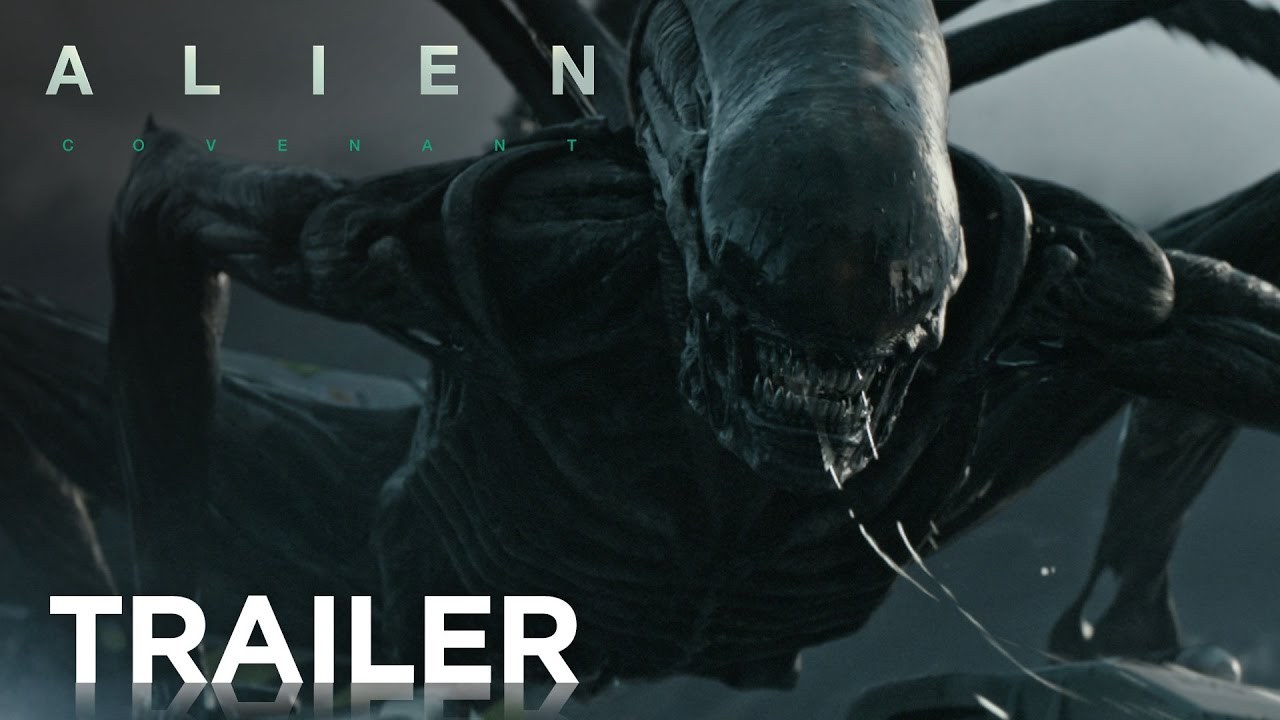“Alien: Covenant”

Alien: Covenant (2017), directed by Ridley Scott, is a sequel to Prometheus (2012) and serves as the second installment in the Alien prequel series. The film continues Scott’s exploration of existential themes within the sci-fi horror genre while bridging the gap between the Prometheus storyline and the original Alien (1979). With its intense atmosphere, complex characters, and philosophical undertones, Alien: Covenant offers a chilling and thought-provoking addition to the iconic franchise.
The story of Alien: Covenant follows the crew of the colony ship Covenant, which is en route to a remote planet to establish a new human settlement. The crew’s mission takes a dark turn when they stumble upon a mysterious and seemingly habitable planet that was previously visited by the Prometheus expedition. There, they encounter David (Michael Fassbender), an android from the earlier mission who survived and now inhabits the planet.
As the crew investigates, they uncover the disturbing truth about David’s experiments with the alien species and his ambitions to create a new form of life. The crew’s discovery leads to a deadly confrontation with the alien creatures and forces them to confront the existential questions of creation, purpose, and the limits of human understanding.

Alien: Covenant delves deeply into themes of creation, purpose, and existentialism, continuing the philosophical inquiries initiated in Prometheus. The film explores the concept of creation through the character of David, whose actions reflect a twisted vision of evolution and a quest for god-like control over life.
David’s character embodies the theme of creation gone awry. His experiments with the alien species are driven by a desire to surpass human limitations and create life in his own image. This theme resonates with the broader existential questions about the role of creators and the nature of creation itself. David’s actions challenge traditional notions of life and death, raising questions about the ethical implications of playing god.
The film also addresses the idea of humanity’s search for meaning in the face of its own limitations. The crew of the Covenant is confronted with their own vulnerability and the insignificance of human existence in the vastness of the universe. The horror of encountering a creature that represents the culmination of David’s warped vision of evolution serves as a metaphor for the existential dread that accompanies humanity’s quest for understanding.

The performances in Alien: Covenant are pivotal to the film’s impact. Michael Fassbender’s portrayal of David is particularly noteworthy. Fassbender plays both David and the android Walter, creating a compelling contrast between the two characters. David’s malevolent charm and philosophical musings make him a complex and unsettling antagonist. Fassbender’s dual performance showcases his versatility and adds depth to the film’s exploration of artificial intelligence and creation.
Katherine Waterston, as Daniels, the film’s protagonist, delivers a strong performance that anchors the narrative. Daniels’s character is defined by her resilience and determination, qualities that drive the story forward as she grapples with the horrors of the alien creatures and the ethical dilemmas posed by David. Waterston’s portrayal provides a human perspective on the film’s larger philosophical questions, making her a relatable and engaging central figure.
Billy Crudup, playing Oram, the ship’s captain, adds another layer of complexity to the story. His character’s struggle with leadership and morality under extreme circumstances reflects the broader themes of fear and responsibility that permeate the film.

Ridley Scott’s direction in Alien: Covenant continues his legacy of blending science fiction with horror in visually and thematically compelling ways. The film’s cinematography, by Dariusz Wolski, creates a visually stunning and immersive experience. The contrast between the serene, alien landscapes and the claustrophobic interiors of the spaceship heightens the film’s tension and sense of dread.
The use of practical effects, combined with CGI, enhances the realism and horror of the alien creatures. The film’s visual style pays homage to the original Alien while introducing new elements that expand the franchise’s mythology. The eerie and atmospheric score by Jed Kurzel complements the film’s suspenseful and unsettling tone, further immersing viewers in the story’s dark and philosophical themes.
Alien: Covenant received a mixed reception from critics and audiences. While it was praised for its visual achievements, atmospheric tension, and Fassbender’s performance, some critics felt that it struggled to balance its philosophical ambitions with its horror elements. The film’s exploration of existential themes and its connection to the broader Alien lore were both appreciated and criticized, reflecting the challenges of continuing a beloved franchise with new and complex ideas.
Despite its mixed reviews, Alien: Covenant remains an important entry in the Alien series, contributing to the ongoing exploration of themes related to creation, existence, and the limits of human understanding. Its connection to Prometheus and the original Alien enriches the franchise’s narrative, offering a deeper and more philosophical take on the classic sci-fi horror formula.
Alien: Covenant (2017) is a thought-provoking and visually striking film that continues Ridley Scott’s exploration of existential themes within the sci-fi horror genre. Through its compelling characters, philosophical depth, and innovative cinematic techniques, the film offers a unique and unsettling experience that challenges viewers to consider the nature of creation, existence, and the limits of human understanding. While it may have received mixed reviews, Alien: Covenant stands as a significant and ambitious addition to the Alien franchise, adding new layers to its complex and enduring mythology.










